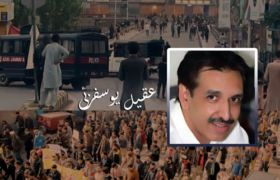Over the past two decades, Khyber Pakhtunkhwa (KP) has navigated a tumultuous path in its educational landscape. Political instability, economic challenges, and ineffective governance have cast a shadow over the region’s educational prospects. This decline in standards has led to a significant increase in dropout rates among students, exacerbating the already prevalent issue of illiteracy.
The repercussions of this decline are stark, with over 4.7 million children out of school in KP according to the Benazir Income Support Program (BISP) 2021 survey. The situation is particularly dire for girls and children from merged tribal districts, perpetuating cycles of poverty and impeding progress.
Various districts, including Palas Kolai, Upper Kohistan, Torghar, and Lakki Marwat, stand at the forefront of this educational crisis. Despite past efforts, the failure to implement effective education policies has left these areas grappling with high percentages of out-of-school children. The merged tribal areas, such as North Waziristan and Bajaur, face similar challenges, emphasizing the urgent need for intervention.
Individual stories, like that of Hina from Sawabi, shed light on the harsh realities faced by many families. Economic hardships often force children out of school and into the workforce prematurely, perpetuating the cycle of poverty and illiteracy.
In response to these challenges, the KP Education Department has formulated comprehensive strategies. These include the establishment of new schools, the implementation of alternate learning pathways (ALP), and a focus on Early Child Education (ECE) policies. Additionally, initiatives such as teacher training programs, literacy centers, and scholarship disbursements aim to enhance educational access and quality.
The government’s commitment to modernizing education infrastructure is evident through initiatives like transitioning schools to solar energy and investing in digital skills training. Plans to provide free textbooks and explore digital learning platforms underscore a commitment to inclusive and accessible education for all.
However, despite these efforts, hurdles remain on the path to reform. The government must prioritize education, allocate sufficient resources, and ensure effective implementation to overcome entrenched barriers. Collaboration between government bodies, NGOs, and communities is crucial in driving sustainable change.
In recent years, there have been promising developments in KP’s education sector. The government’s efforts have resulted in the establishment of numerous schools and the provision of educational resources to underserved areas. Additionally, initiatives such as the Merit and Need-Based Scholarship Program have enabled deserving students to pursue higher education, breaking the cycle of poverty.
Moreover, community engagement programs have empowered local stakeholders to play an active role in improving educational outcomes. Through initiatives like parent-teacher associations and community-led education projects, KP is fostering a culture of ownership and accountability in its education sector.
Despite these positive strides, significant challenges persist. Infrastructure gaps, teacher shortages, and cultural barriers continue to hinder progress. Furthermore, the COVID-19 pandemic has exacerbated existing inequalities, disproportionately affecting marginalized communities and widening the education gap.
To address these challenges, sustained investment and innovative approaches are needed. Leveraging technology, enhancing teacher training programs, and strengthening partnerships with the private sector can help KP build a resilient and inclusive education system.
In conclusion, while KP’s journey towards educational reform may be fraught with challenges, it is also marked by resilience and determination. By prioritizing education and fostering collaboration, KP can unlock its potential and pave the way for a brighter future. Through concerted efforts and unwavering commitment, KP can ensure that every child has access to quality education, empowering them to realize their full potential and contribute to the region’s prosperity.





